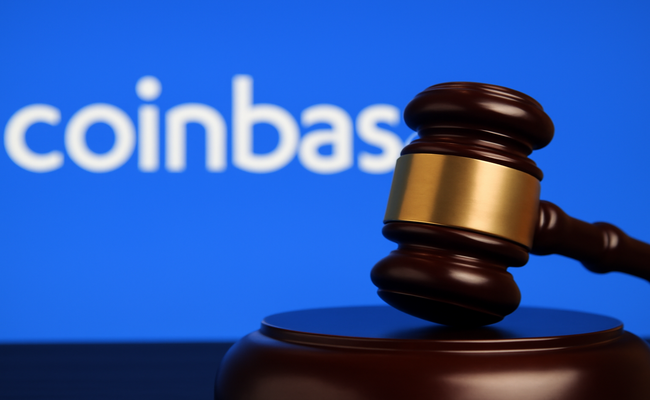Highlights:
- The Supreme Court has let the IRS access crypto data from Coinbase without reviewing Fourth Amendment privacy claims.
- The IRS can still demand user records from exchanges as courts uphold third-party data access without warrants.
- Crypto investors are facing more tax scrutiny as IRS letters rise and privacy concerns grow.
The United States Supreme Court, the highest court in the federal judiciary, has declined to review a case challenging the authority of the IRS to access crypto user data from Coinbase. The petition came from James Harper, who claimed the IRS obtained his private financial records without proper cause. The case focused on whether the IRS violated his Fourth Amendment rights by demanding access to his crypto transaction history.
⚖️ Supreme Court Declines Case on Coinbase User Data
The U.S. Supreme Court has chosen not to hear a case involving Coinbase and the privacy of its users’ financial data, leaving lower court decisions in place.
🕵️♂️ What does this mean for crypto user privacy rights in the U.S.?… pic.twitter.com/1XFryh1Frk
— Times of Blockchain (@ToBcryptonews) July 1, 2025
Coinbase was subjected to an IRS summons that sought the information of more than 500,000 users of the platform. Harper brought his case to court in 2020 after he discovered the agency had shared his account information. He contended that seizure of personal records without a warrant constituted an unconstitutional search, violating the Fourth Amendment.
Although Coinbase initially fought the summons, a district court later ordered the company to release a limited set of user data. Harper’s information was included in that release. In 2019, he received a letter from the IRS suggesting that he may have failed to report crypto gains.
IRS Enforcement Powers Unchecked as Users Raise Crypto Privacy Concerns
Now that the Supreme Court has denied the petition, lower court rulings will remain in place. This result enables the IRS to maintain access to transaction data at crypto platforms. Coinbase sided with Harper and cautioned that the ruling would establish a precedent that would cover all users of financial services.
Paul Grewal, the chief legal officer at Coinbase, stated that he found the breadth of the requests made by the IRS worrisome. In a statement posted in April, he said the issue extended beyond digital assets. “This goes far beyond a narrow and tailored request and far beyond crypto,” he said. Grewal added that Americans should expect the same protections for online accounts as for physical mail.
We believe in tax compliance, but this goes far beyond a narrow and tailored request and far beyond crypto. This applies to banks, phone companies, ISPs, email, you name it. As we explain here, you should have the same right to privacy for your inbox or account as you have for a…
— paulgrewal.eth (@iampaulgrewal) April 30, 2025
The debate has intensified around the issue of crypto privacy. The legal team representing Harper urged the court to reconsider the 1976 third-party doctrine. That rule says people give up privacy rights over data shared with banks and service providers. Critics argue that such standards no longer fit today’s digital environment.
Nevertheless, the government justified the IRS policy. According to officials, Harper was not entitled to privacy concerning records kept by Coinbase. Although some justices previously expressed doubts regarding the third-party doctrine, the Court provided no reason as to why it did not agree to hear the case.
Crypto Tax Scrutiny Increases as User Notices Surge
Even as lawsuits drag on, the IRS has increased enforcement activity against crypto investors. An increased number of users are being notified regarding potential tax matters surrounding their activity with digital assets.
🚨BREAKING: IRS CRACKS DOWN ON CRYPTO GAINS.
Thousands of U.S. investors are receiving IRS letters warning their tax filings may be inaccurate.
“Inquiries are flooding in,” says CoinLedger CEO.
The taxman is watching your bags. pic.twitter.com/T8vrijmxYh
— DeFi Planet (@PlanetDefi) June 30, 2025
A crypto tax software company, CoinLedger, said that the number of requests regarding cryptocurrency taxes soared by nearly 45 percent between May and June. The company claimed that numerous users had received IRS letters and had been tracked down via a John Doe summons. CoinLedger pointed out that the presence of these letters does not necessarily imply that users violated tax laws. The increasing level of notices, however, indicates that the IRS is becoming more aggressive in its surveillance.
Best Crypto Exchange
- Over 90 top cryptos to trade
- Regulated by top-tier entities
- User-friendly trading app
- 30+ million users
eToro is a multi-asset investment platform. The value of your investments may go up or down. Your capital is at risk. Don’t invest unless you’re prepared to lose all the money you invest. This is a high-risk investment, and you should not expect to be protected if something goes wrong.






